Dune: Part Two
Dune it and Dune it and Dune it well. He represents Atreides, she was raised out in Arrakis.
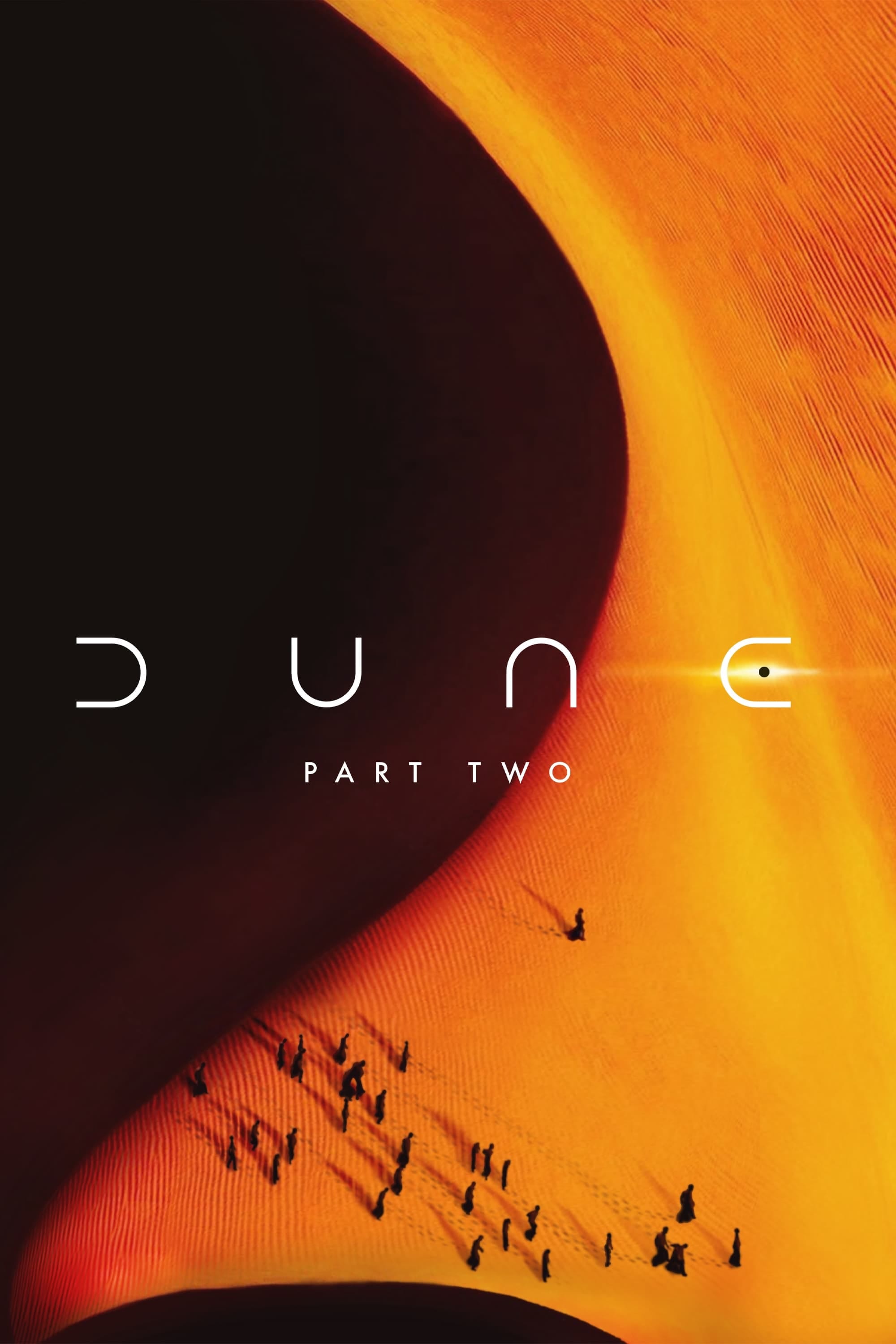
Paul Atreides is now with the Fremen, on a quest of vengeance against those who were responsible for destroying his family, and fighting the Harkonnen oppressors who hold Arrakis under their boot. Through all of this, his heart belongs with Chani, the young Fremen woman from his visions, but he fears a terrible future that only he can foresee, and soon enough, finds himself facing a choice between the love of his life and the fate of the universe.
As I said in my review of Part One, despite the influences of Dune throughout genre fiction being undeniable, from sci-fi franchises like Star Wars and Aliens, to fantasy franchises like Game of Thrones and the Wheel of Time, I honestly did not expect this second film to happen. Given the long history of failure in pop culture of the various Dune adaptations, I naturally assumed that this film had no chance of getting made, especially as it depended on the first film being a financial success, which I also did not expect to happen, and yet somehow, beyond all my expectations…
It worked out.
And here we are, with the second film in this two-part series, telling a story about the dangerous cruelty inherent in both capitalism and religion.
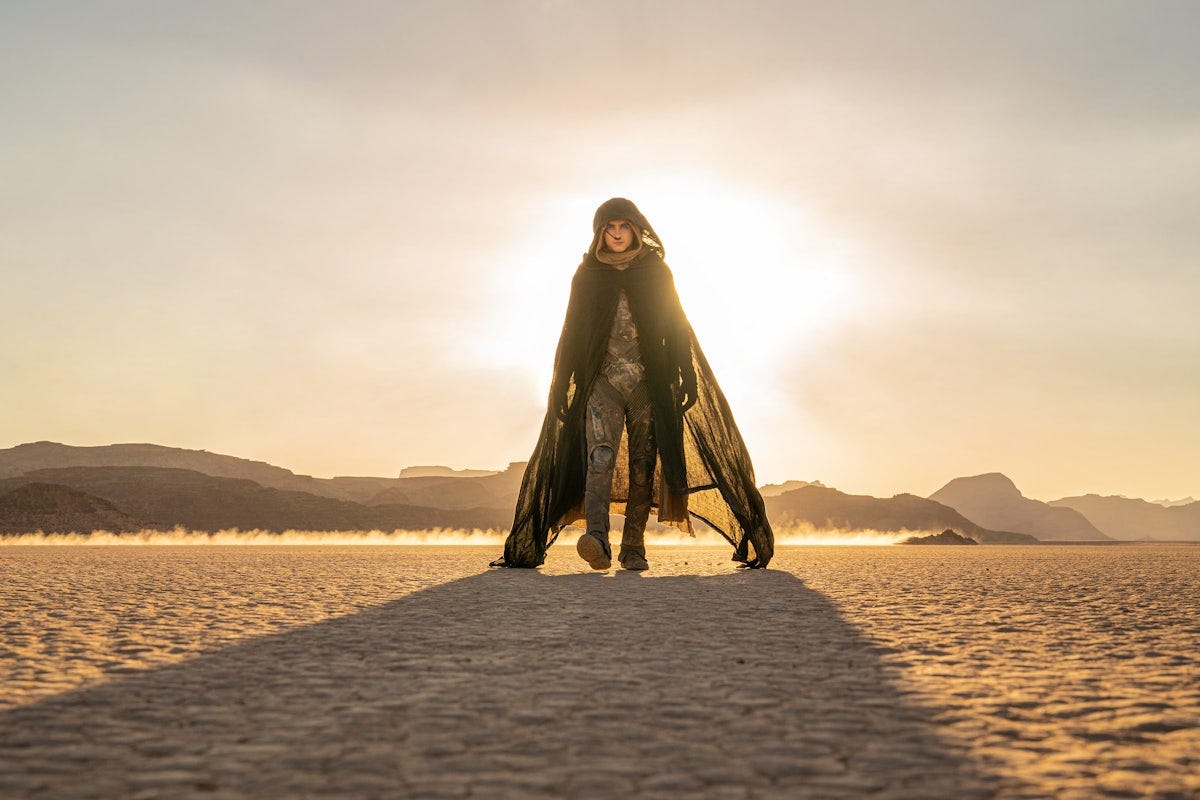
Set in the far-flung future of humanity in the year 10,192, or possibly 10,193 at this point, Paul Atreides, now Duke of House Atreides, one of the only members of House Atreides still alive, is haunted by the terrible visions of what awaits him should he be the Kwisatz Haderach, the prophecized superbeing that the Bene Gesserit Order has been preparing for the coming of for thousands of years. In these bloody visions, Paul sees the universe burning, consumed in a holy war, and the blood of billions being spilled in his name.
But as the Fremen warriors of Arrakis begin to gather to him in the millions, and the whispers of his Fedaykin war name, Muad'Dib, terrifying his enemies, despite what he may wish otherwise, Paul is beginning to fulfill the ancient Fremen prophecies of the Lisan al-Gaib.
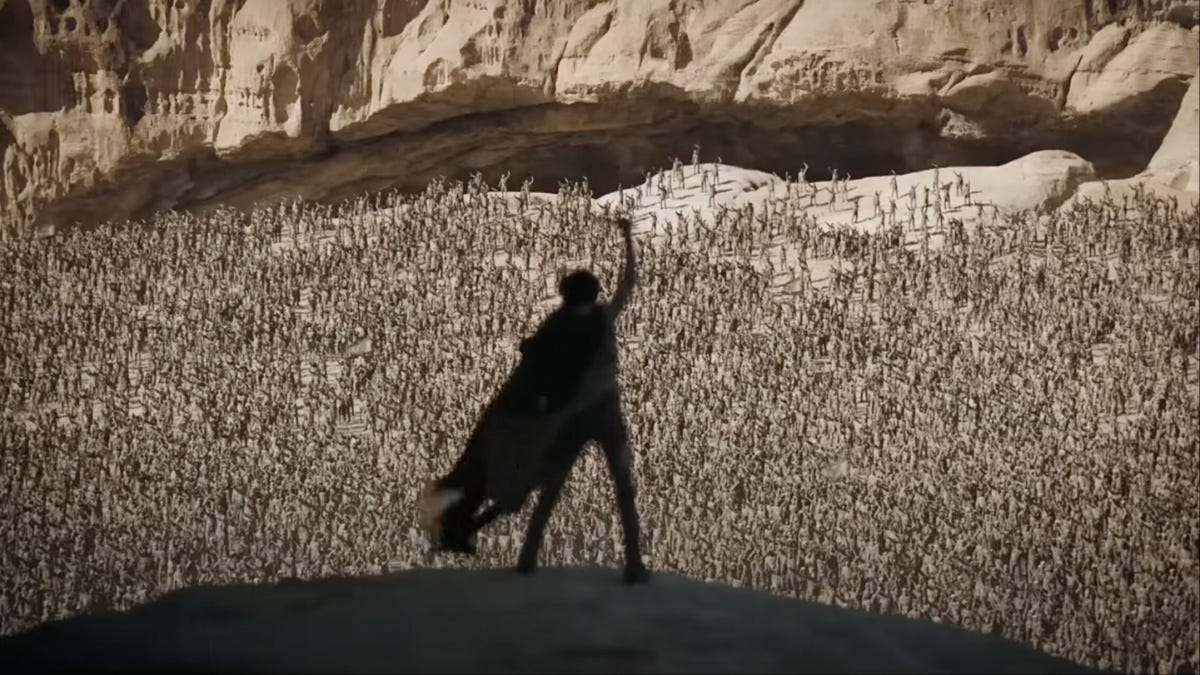
But these prophecies are merely the creation of Bene Gesserit witches who came to Arrakis long ago. In much the same way that a CIA-backed warlord might manipulate local warriors by exploiting their superstitions and hatreds, all in order to use them in the service of foreign masters, the Bene Gesserit created the prophecies of the Lisan al-Gaib, “The Voice from the Outer World,” which is just the Kwisatz Haderach by a different name, all so that the Fremen would be ready to aid him in his rise.
Paul knows the Bene Gesserit ways, as his mother, the Lady Jessica is part of the Order, and she has taught their ways to him since his birth, which is a clear violation of the Bene Gesserit edicts due to him being a male. As a result, he knows that all of this is true, that the Lisan al-Gaib is just a Bene Gesserit construction, and he chafes at the manipulation.
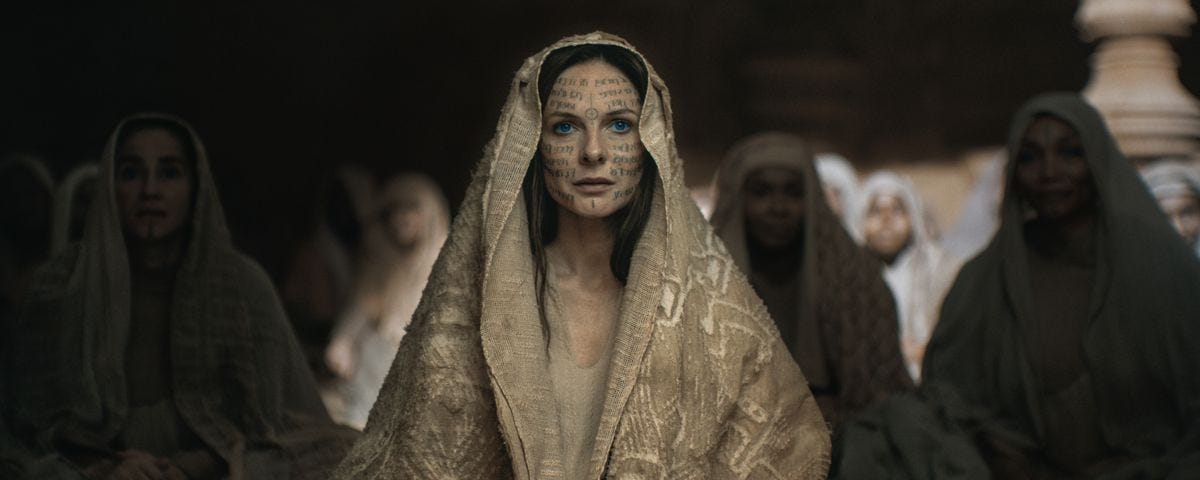
He strains against the collar the Bene Gesserit have placed around his neck, the path they are forcing him to walk. He denys that he is the Lisan al-Gaib, but the prophecies are ready for this, so the Fremen only see the modesty of the prophet, as they gaze up at him adorningly.
Meanwhile, the Lady Jessica, who, alongside Paul, escaped the destruction of their House at the hands of House Harkonnen, and is now hiding in the desert, has become the Reverend Mother to the Fremen, and is using her influence to lash them irrevocably to Paul’s side.
Through all of this, Paul loves Chani, and Chani loves Paul. Together, they are a pair of wild young revolutionaries striking out at their oppressors, blowing shit up, making out, and leaving nothing but burning rubble in their wake.
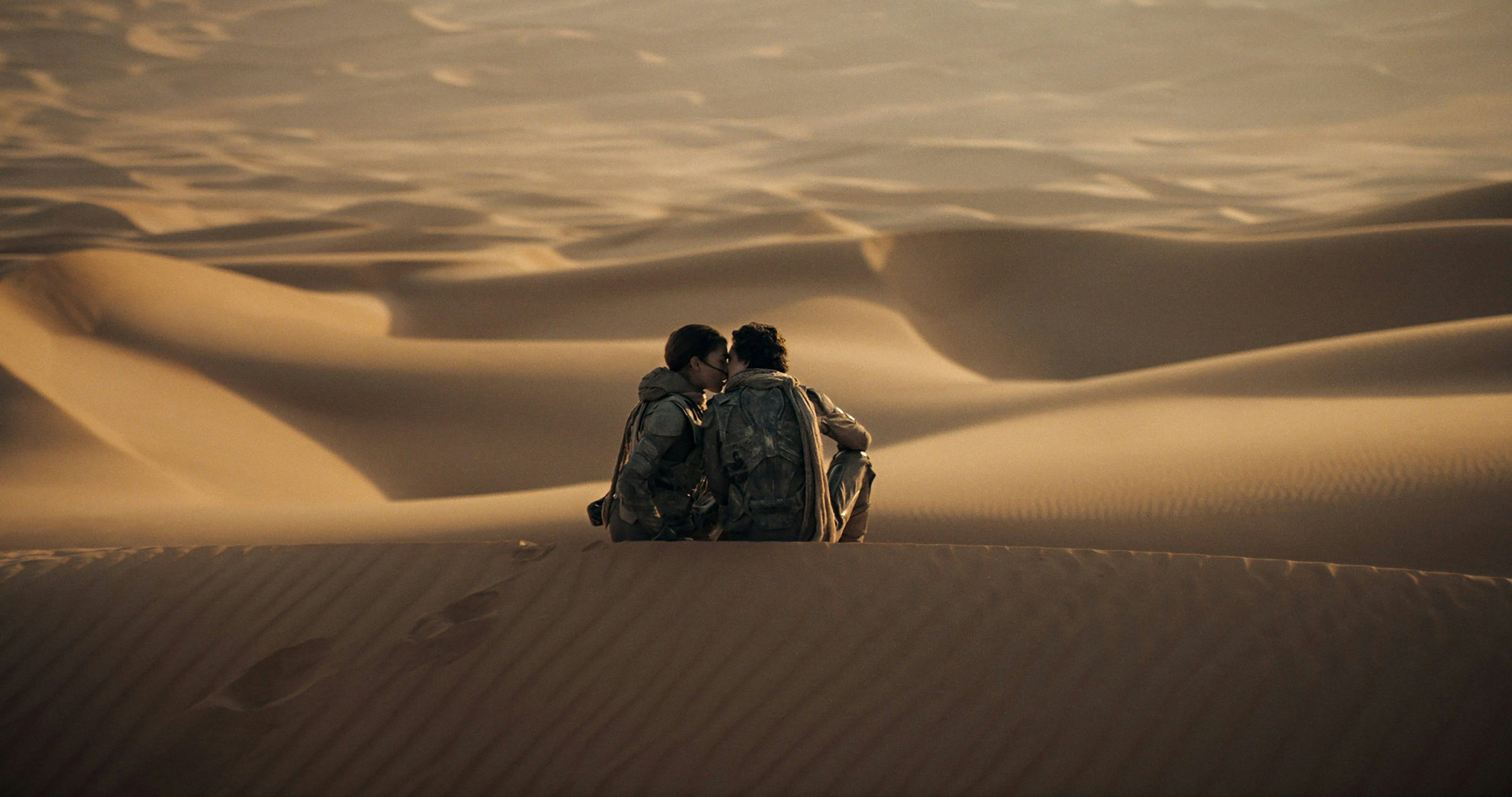
But like a lot of young Fremen, Chani doesn’t believe in the Lisan al-Gaib. She can see the lies that have been built around Paul, and she hates it. She especially hates it when she sees how so many of her people believe these lies with all their heart, and how so many of them are ready to fight and die for the Lisan al-Gaib, to follow him wherever he may lead them, whether it’s on Arrakis, or across the stars.
Chani begins to fear Paul and who he is becoming, because whether these prophecies are just Bene Gesserit lies or not… Paul is still fulfilling them.
He is an outsider with the power of the Voice. He has learned the ways of the Fremen with ease. He has ridden Shai-Hulud, the great sandworms, harnessing the power of the deserts. And finally, he drank the poison called the Water of Life, and after doing so, fell into a coma, to be revived by “the tears of the desert spring,” which turns out to be a reference to Chani’s Fremen name, Sihaya, which means “Desert Spring.” As her tears mix with the Water of Life, Paul awakens with all of his ancestral knowledge, proving for all to see that he is the Lisan al-Gail, that he is the Kwisatz Haderach.
The sleeper has awakened.
Now his Fremen warriors are burning even more brightly with the fires of zealotry, and the blood Muad’Dib is spilling in the sands of Arrakis begins to wash up on the distant shores of the Imperial Throne world, to wet the slippered feet of the Padishah Emperor, Shaddam Corrino IV, as he sits upon the Golden Lion throne. The Emperor can ignore this trouble no longer, especially as the flow of spice is being disrupted, so he journeys to Arrakis himself, to see to the problem of this young upstart rebel Maud’Dib personally.
Which is exactly what Paul wants.
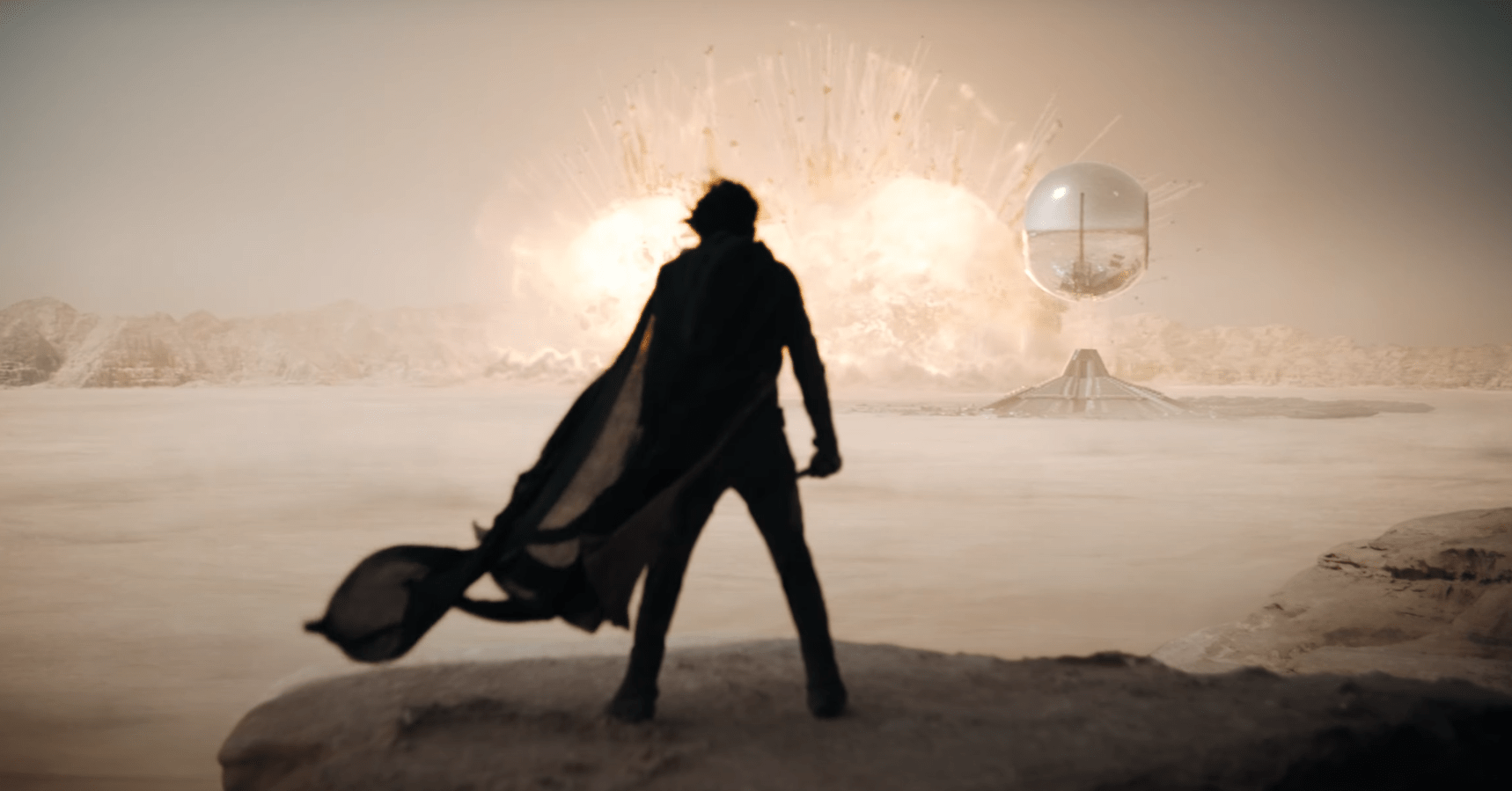
But Paul isn’t the only major player on the scene.
Just in case things go awry, the Bene Gesserit asked themselves long ago… Why have one potentially undeniable agent of bloody change and bringer of new eras, the result of thousands of years of carefully planned breedings of bloodlines, capable of striding across the very face of the Known Universe, carrying fire and death wherever he goes, like young Paul Atreides… when you can have two?
Enter Feyd-Rautha Harkonnen.
The spoiled scion of House Harkonnen, a pasty, fish-belly pale, and eagerly cruel people, foul and ugly both in action and appearance, and driven by their seemingly insatiable greed, entitlement, and love of cruelty, Feyd-Rautha is both the worst, and also the best of them. A dangerous sociopath born with every imaginable advantage, a status he revels in, Feyd loves inflicting pain. With Arrakis now back under the iron-fisted rule of House Harkonnen, Feyd has come to the desert planet to kill as many Fremen as he can, and to take the head of the rebel Maud’Dib.
You could call him Dark Paul, despite the fact he is as pale as a corpse.
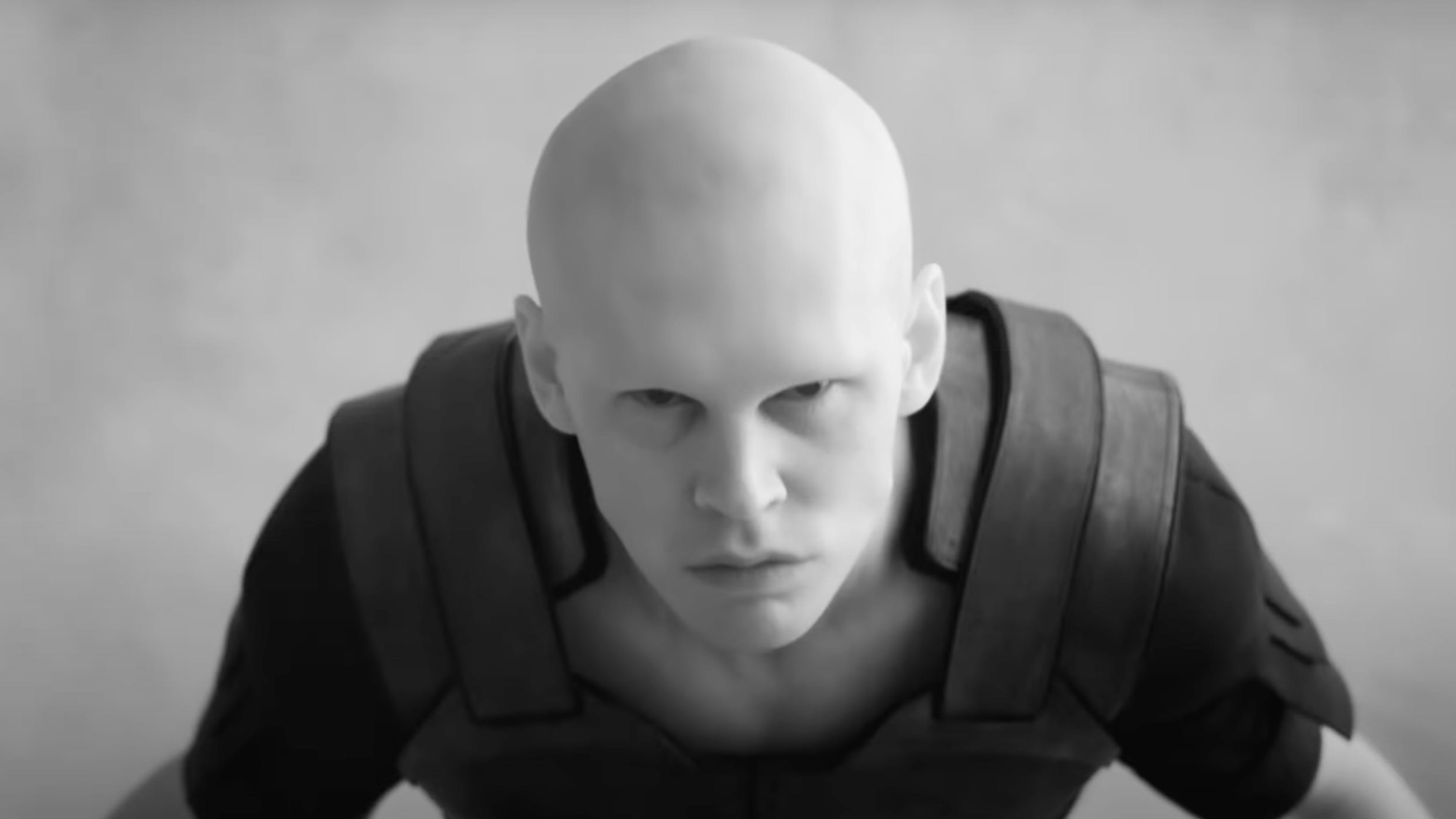
He’s gonna get one heck of a sunburn…
There’s also the Emperor’s beloved daughter, the Princess Irulan Corrino.
A favored child of the Sisterhood, trained in the deepest of the Bene Gesserit ways, and destined to be a Reverend Mother, Irulan acts as both narrator, and also as our witness to the great tides of change that sweep across the universe.
Irulan knows that this coming change is inevitable too, that the future has been determined, and at this point is only trying to save her House from total destruction, and her father too, who does not yet understand that his time is done. To do this, she accompanies The Emperor to the planet Arrakis, where her destiny awaits.
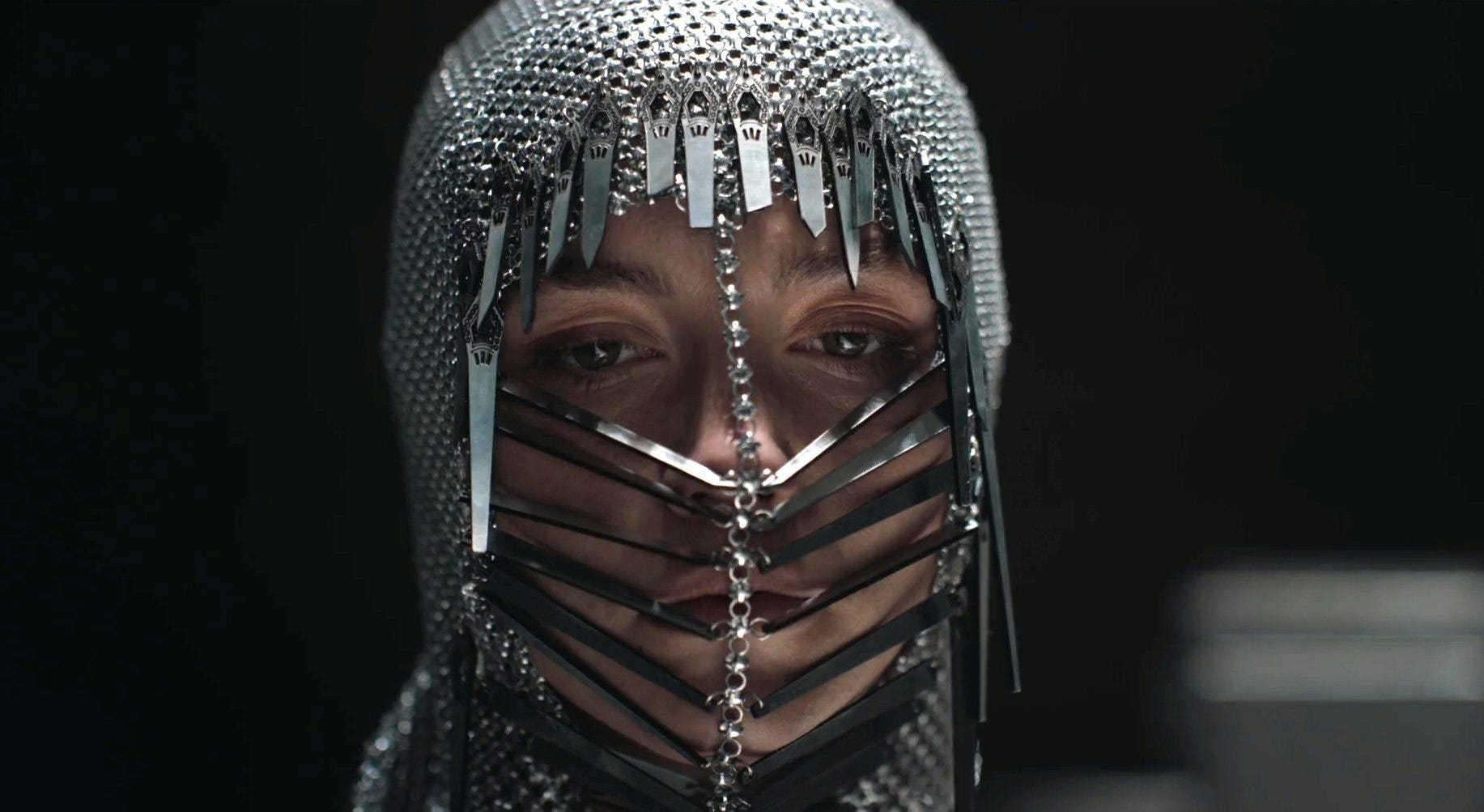
These three converge at the head of three mighty armies doing battle on the day that would mark the beginning of the end of the great Corrino Empire, and the rise of the bloody-minded Atreides Empire.
It’s a massive kerfuffle.
And in the final moments, Paul Atreides fully embraces his destiny as the Kwisatz Haderach. First, he agrees to marry Princess Irulan, and to spare her defeated father, the disposed Emperor, breaking Chani’s heart. Secondly, as the Great Houses of the Landsraad array against Paul’s sudden seizure of power, he sends his Fremen warriors out into the Known Universe. This is the beginning of the great holy war, the subject of the horrific future vision Paul has long been plagued by, the vision that he had long hoped to avoid, but that time is passed. House Atreides is now victorious, and Paul is the Kwisatz Headerach, and the cost of all this is a war that will burn half the universe.
It’s all very epic and operatic, but still, in the end, it really only ever comes down to two dudes rolling around in the dirt, slap-fighting.
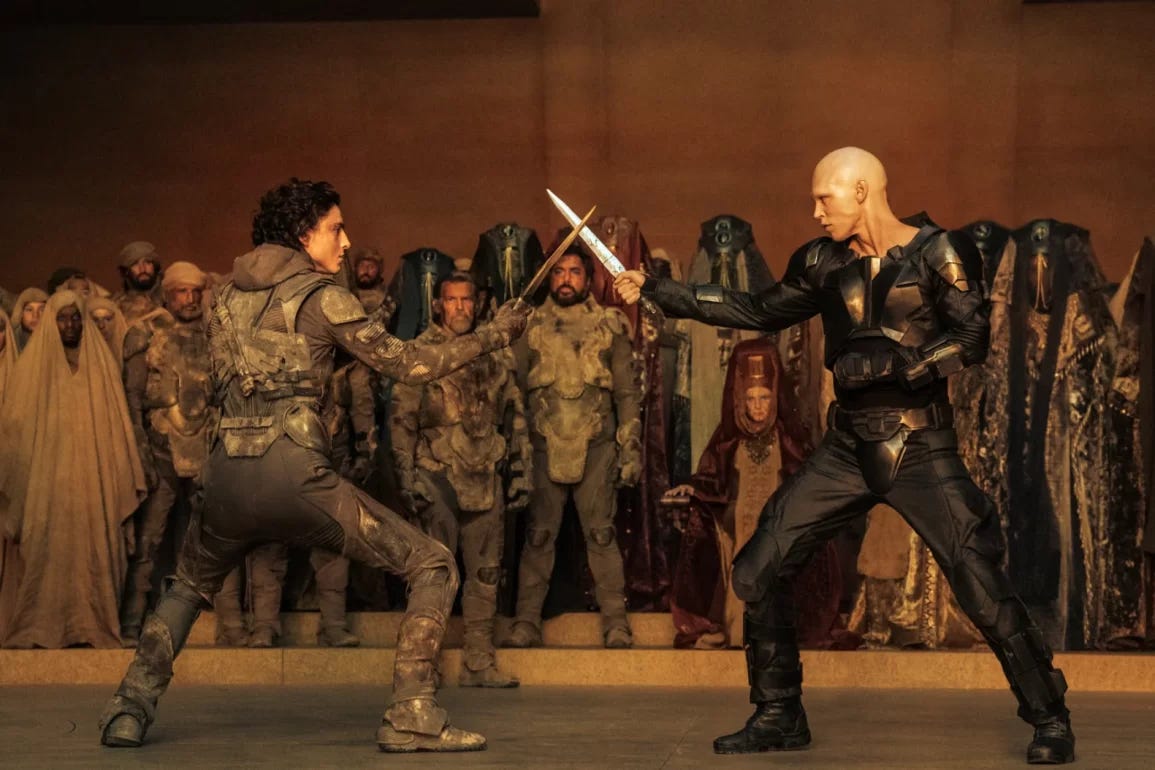
In many of the same ways as the Lord of the Rings films, these two parts of Dune are truly great movies. They are great in the way of all classic Hollywood epics, as they are truly spectacular extravaganzas. They are great in the way a perfectly done adaptation of a seemingly impossible to adapt classic book is, retaining everything that it should, and setting aside everything it doesn’t need. They are great in the sense that this is very clearly the result of a Director’s big bold vision that is uniquely their own, just as it is also obviously the product of a deep love for the source material.
In short… they’re just great.
Plus, they’re awesome… the way they do the lasers in the film? The ambushes on the Harkonnen Spice Harvesters? The fights against the Emperor’s Sardaukar soldiers? Awesome. All of it. Loved it.
Now, does this story sometimes seem a little obvious and telegraphed? Yeah. Do the pieces of the prophecy occasionally seem to slot too easily into place? Sure, but much like with the Lord of the Rings films, this is what happens when you wade far up the pop culture stream to the wellspring of so many other classic franchises. Yes, it can be familiar at times, but that’s because you’ve seen all these other stories that it inspired. And yes, it can seem obvious at times, but that’s because many of the narrative tricks that you see here have been used by so many other stories so many times since.
Plus, it was written nearly 60 years ago…
What else can be said but that, other than… open your eyes, my child, and gaze upon the progenitor of so many of your dreams.
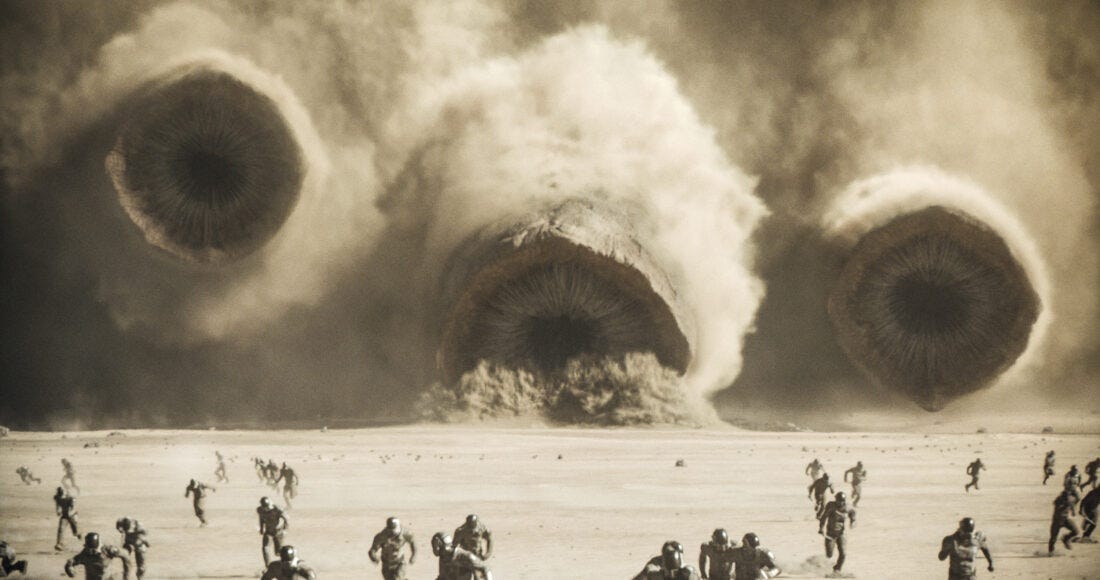
Much like the Lord of the Rings, Dune is a big, weird, and unwieldy story, one that is weighed down not just by all the nonsense contained within the book itself, but by all the nonsense that comes after, and around it. Herbert’s classic story comes with that same kind of deep, deep, ridiculous lore, all of it populated by a cacophony of strange names with long histories, same as Tolkien’s story, and again, much like with the Lord of the Rings’ films, the key to making a great adaptation out of such a story lies in the making of smart choices.
Which is what they do here.
Of course, this also means that there’s definitely a list of things that have been cut out, condensed, or reconsidered and then presented from a slightly different angle.
For example…
While Jessica still drinks the Water of Life while pregnant, and ends up with Alia, the super baby, growing inside her, the film cuts out the very early birth due to the whole fast-growing baby thing, and while I approve of the Anna Taylor Joy cameo, I do kind of wish that the new films had taken the opportunity to reimagine Alicia Witt’s classic creepy little baby-witch character.
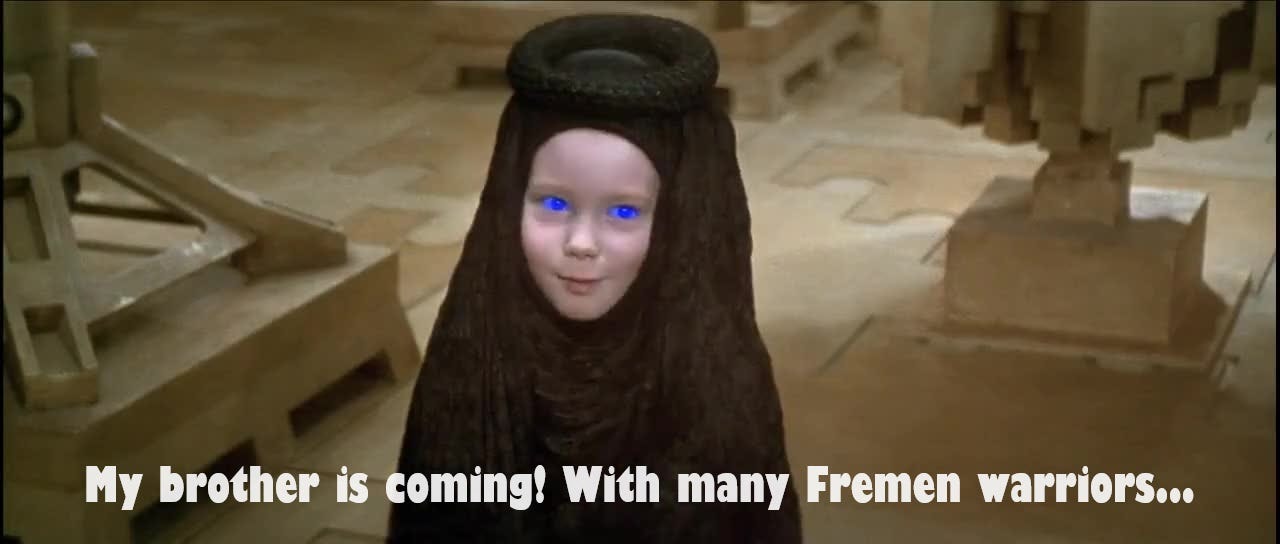
The new films also leave out The Weirding Way.
In the book, the Weirding Way was a form of close-quarters combat where an adept individual was able to move in sudden bursts of high speed, like Neo when he realizes he’s The One, but so fast it almost seems like teleportation to the poor bastard who’s getting their ass kicked. In the 1984 movie, The Weirding Way was changed from a martial art to a handheld thing called The Weirding Module, which focused the Bene Gesserit Voice into a kind of sonic weapon.
David Lynch apparently decided to make this change because he supposedly couldn’t figure out how to make the high speed fighting work on camera, but I think the truth is, at least judging by his supposed statement that he did not want to see "Kung-fu on sand dunes,” is that he actually just didn’t like the entire idea at all.
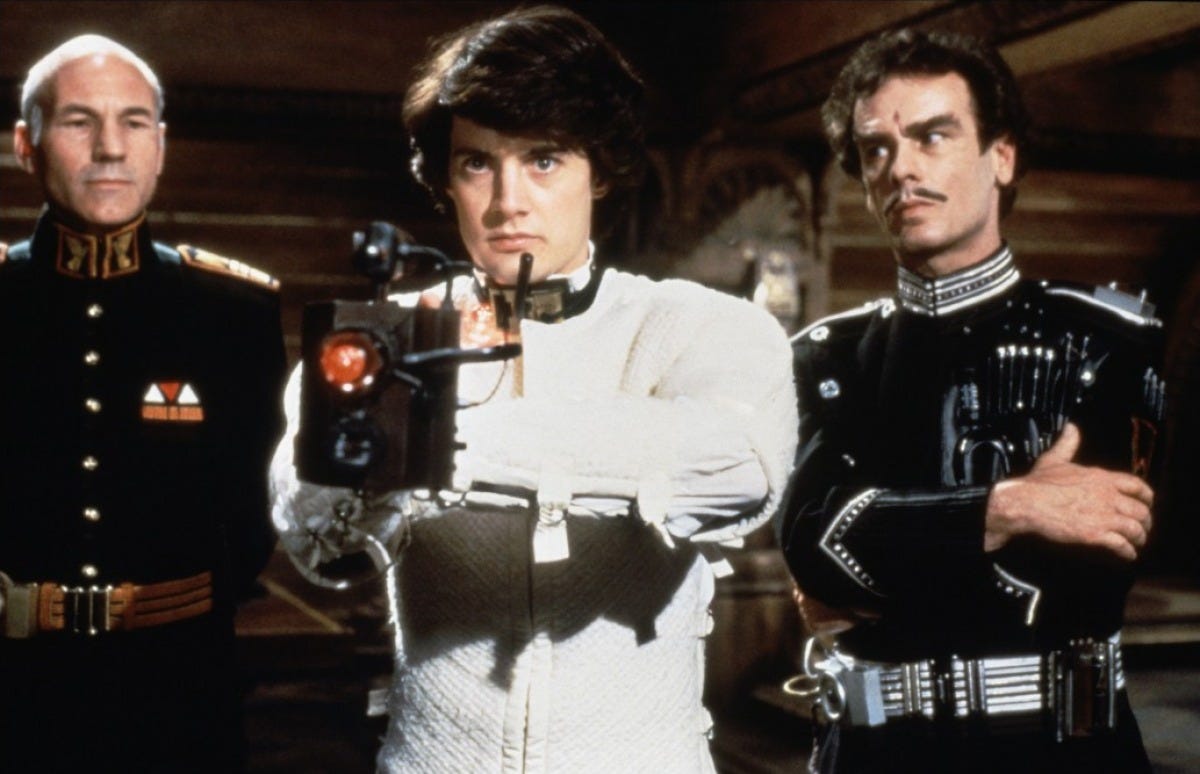
In the new films, the Weirding Way is only off-handedly mentioned maybe once.
The new films also left out the Spacing Guild, the weird octopus-like, spice-mutated humans that have a controlling monopoly on interstellar travel and banking, mostly because they’re the only ones who know how to use the spice in order to “fold space” so that they can pilot starships between the planets. They’re extremely powerful in the Dune Universe, as powerful as the Emperor, so everyone has to be really nice to them or they’ll get pissy and refuse to drive you anywhere, not even if it’s your birthday and you had long been planning to go to Fuddruckers to celebrate.
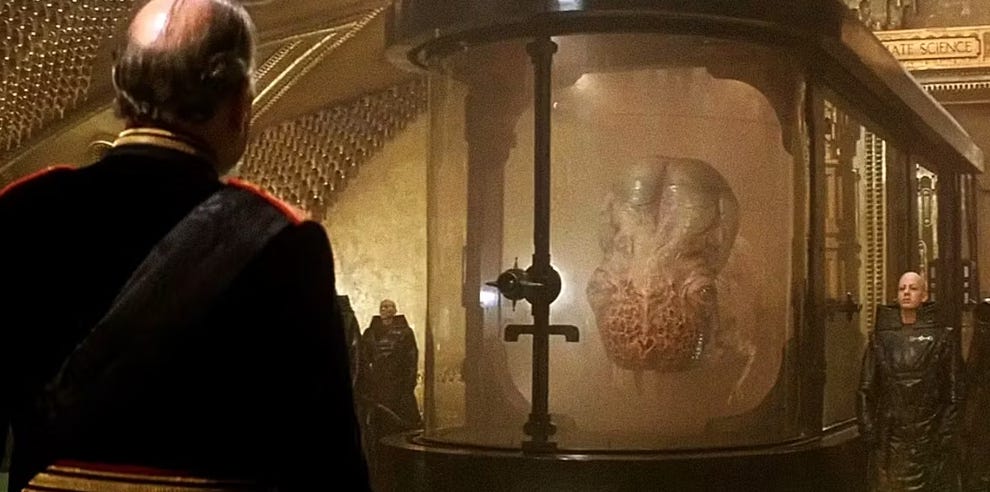
But.. it’s also fair to mention that, at least in the first book, which these two films cover, the Spacing Guild basically has no direct impact on the story at all, despite being so powerful, which basically makes them a lot like Dune’s Tom Bombadil. And like with Tom Bombadil, while it does make sense to cut them, I do still kinda miss the weirdness.
More than anything else, the most interesting change involves Chani…
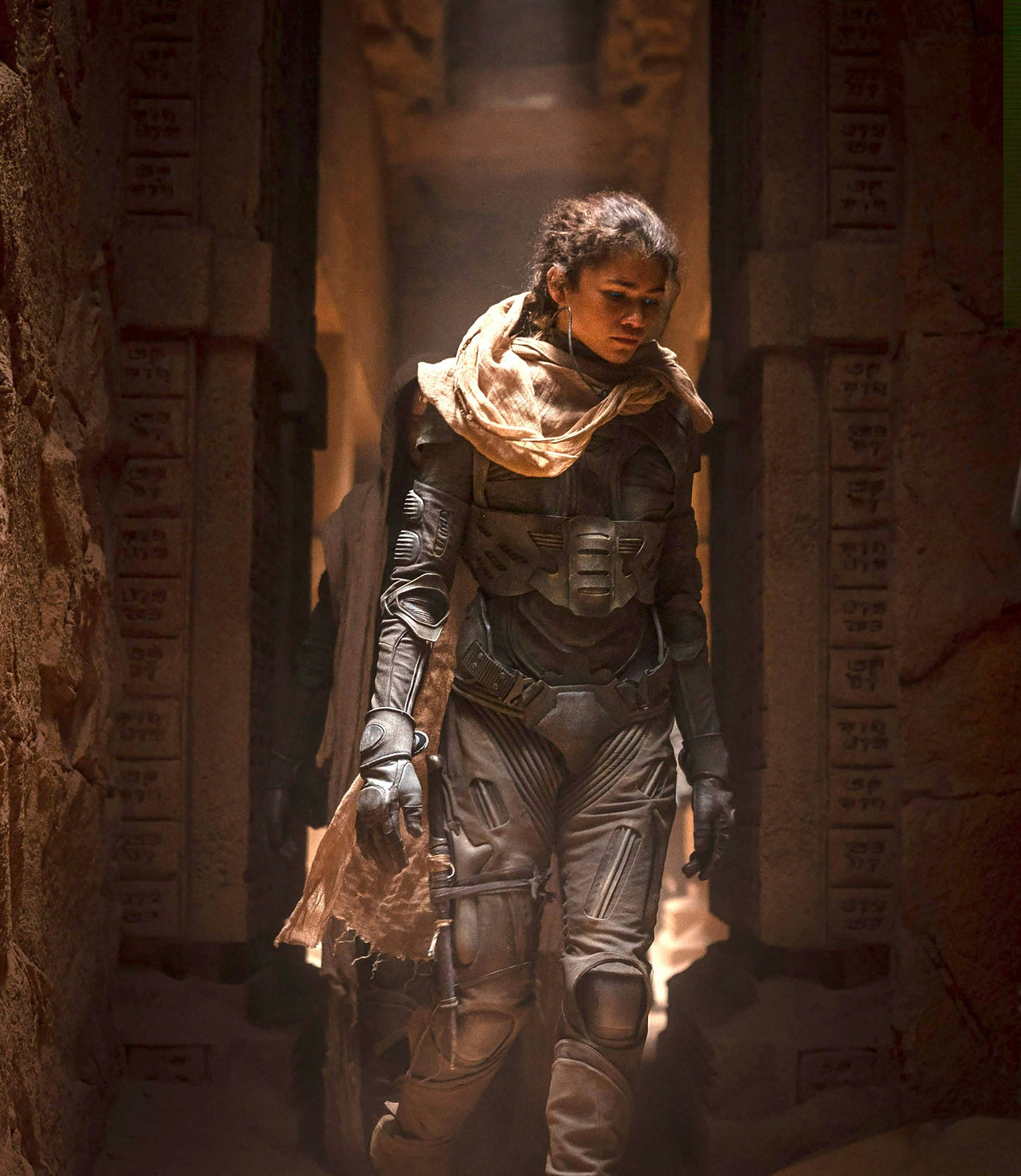
While her trademark smirk and dry delivery isn’t very present here, as Chani isn’t really that kind of character, and Dune generally isn’t that kind of story, Zendaya is still great here, bringing the charm and spark that she’s known for to the character of Chani, the charm and spark that allows her to be one of those people who can just walk around town, claiming that she doesn’t have a last name. This is good news, because she’s playing a new interpretation of the character, one that has a lot more nuance and agency to her.
Usually, the female lead character in a film like this, the story of a guy discovering that he’s actually super awesome and special, goes one of two ways.
One, she’s cold and distant, almost like she hates him, this brash upstart man, but in actuality, this is just an attempt to mask how much she loves him, it’s just that she’s used to being so in control, so she’s afraid of… losing herself, she says, whispering, as they lean in, their lips just barely touching... because she loves him so much, y’see, it’s like a fire within her very loins, and that’s scary.
Or two, she’s a big scold, often crossing her arms at the wild hijinks this vexing man takes her on, narrowing her eyes at his smirking refusal to ever follow the rules, or to think before he leaps. Oooo, that man, she says, stomping her dainty little foot, but y’see, she only gets so cross with him… because she loves him, she loves him so much, it’s like a fire in her very loins, and that’s scary.
And while there’s a bit of that here, the major changes to Chani in this film are all intended to provide a critique of the colonialist fantasy that is inherent to the story of Dune. Through Chani’s eyes, we are able to see the very real dangers inherent to the white saviour that is Paul. Despite loving him, she is also the one who truly sees the what affect his presense is having, and will have, on her people, and that is actually scary. It’s terrifying, in fact. Chani sees the same dark future ahead that Paul does, but she doesn’t see it through fevered nightmarish visions like he does, she sees it just by looking at him, and by seeing how her people look at him.
She sees it in his eyes.
Like that Nick Nolte quote from The Thin Red Line: “The closer you are to Caesar, the greater the fear.”
In the book, Chani is the usual kind of female supporting character, only there to encourage and support Paul. She is also white person, and tied to Paul due to having had his children. In the film, Chani’s opposition to the religious indoctrination of her people, and that Zendaya is a person of color and Paul is white, serves to highlight not just the story’s anti-colonial messaging, but to subvert the white saviour trope. This is something films like Avatar are incapable of doing, mostly because they are seemingly ignorant of how engrained the trope is in their story, due to either just being unable to understand it, or they simply don’t give a fuck. And while, much like in Star Wars, the intention here in Dune is to create an alien setting using foreign (to Western cultures) settings and cultures as a touchstone, usually the portrayals of desert-centric planets, the people who live there, and their cultures (for example), rely upon common racist ideas associated with the Middle East, all while appropriating Arabic-sounding words and names for whatever use the story may require, so having Chani be the one who provides this critical counter viewpoint is important, because she is so central to the film and so tied to its main characater.
Through her, the film pushes back on the “Western Civilization” idea of the “East/Orient” as being the “Other,” this all too common idea of it being this exotic, backward, uncivilized, and often dangerous place that the brave men of the West must tame, all to save the heathens from their barbaric ways. Through Chani’s clear-eyed understanding of the terrible reality that Paul is bringing to fruition as he ascends to power, we are able to see clearly who the dangerous ones truly are.
Maybe the best microcosm of this is the moment where Paul assumes that his book-learned sandwalking is equal to Chani’s lived experience. He checks himself, yes, and listens as she teaches, but still, this scene shows us the truth, that Paul will never be able to understand that, as much as he may want to be a part of the Fremen, he will never actually be one of them, not truly. He can’t be. The privilege that his rank and birth afford him mean that he isn’t capable of understanding how this privilege will always set him apart, that his rank and birth will always afford him opportunities others will never have.
He learned sandwalking by reading about it in the safety of his childhood home.
She learned it, because if she didn’t, she would die.
The proof of all of this lies in the film’s ending, where Paul easily, and eagerly embraces colonialism and imperialism, throwing away his revolutionary ideals of burning it all down to instead sit at the head of the table, and he does this because he is incapable of doing anything else. “It’s a figure of speech. You know what I mean,” says Gurney Halleck, upon seeing Chani’s horror after he blithely discloses to Paul that they have enough nukes at their disposal to blow up the entire planet of Arrakis, if they don’t get their way.
Leopards, spots, yadda, yadda, yadda…
And the kicker to this change is the whole “tears of the desert spring” thing.
In the book, Chani still helps revive Paul from his coma, but the prophecy doesn’t require her. Whereas now, when Lady Jessica uses the Bene Gessirit Voice to force Chani to give her tears to Paul—something the Fremen would never do, as it wastes water—in order to wake him, and all in accordance to the Lisan al-Gaib prophecy, Chani becomes complicit in the Sleeper Awakening. She is now a crucial piece in the rising of the Kwisatz Haderach. She is now directly responsible for the terrible future of war and death and suffering that not only awaits her people, but many others all across the galaxy as well. To paraphrase that one guy: “She has become death, the destroyer of worlds.”
And she did it all for love.
Then, Paul announces that he will marry Irulan.
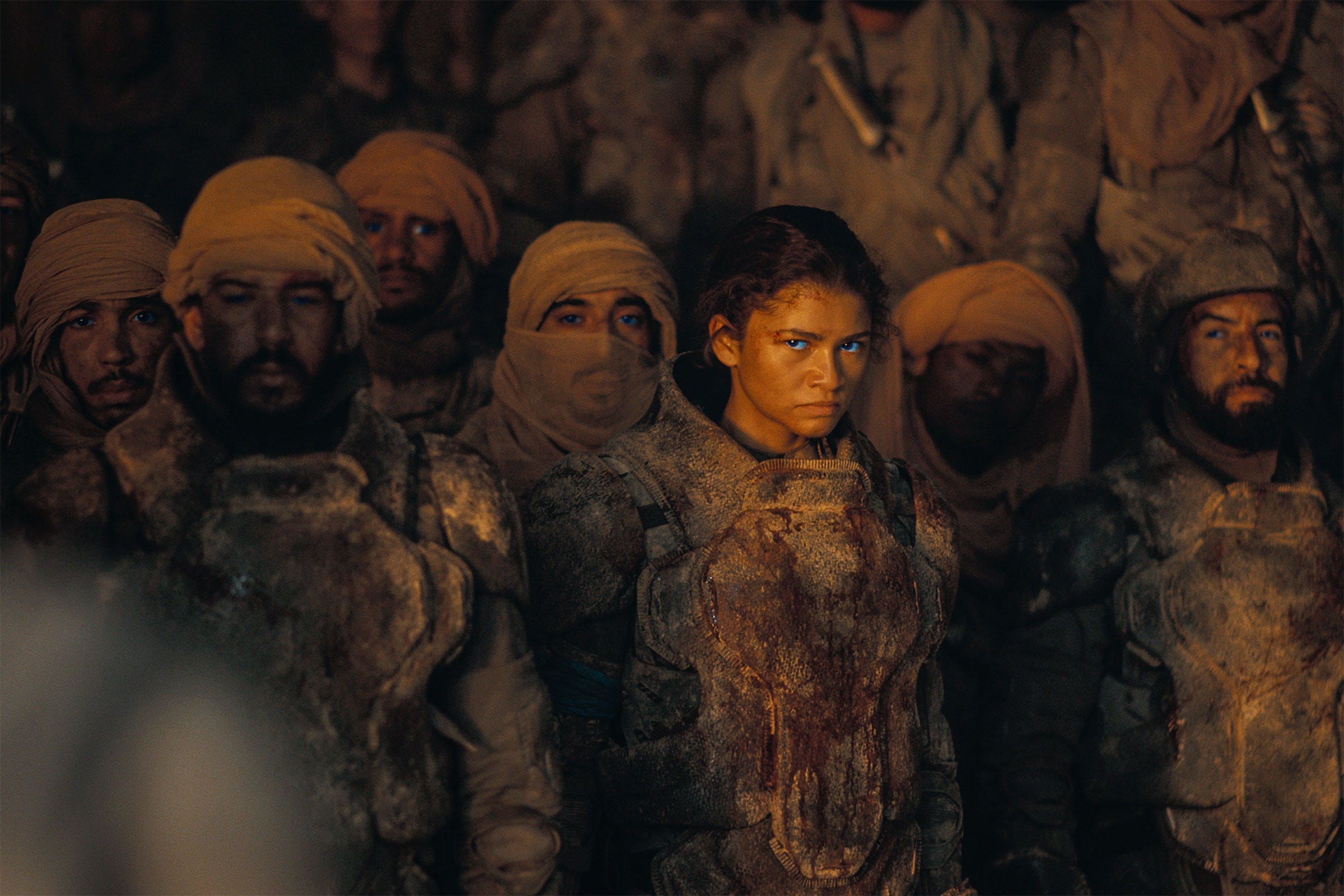
Yes, it’s for political reasons, but still this is obviously heartbreaking for Chani. She loved him, silly and simple as that is, and it hurts. But it’s more than just a break-up. As the movie shows, Chani has long been afraid of what Paul would become, but she allowed herself to hope it wouldn’t come to pass, and when it actually happens, she’s furious. Yes, she’s furious at her dipshit man-baby boyfriend angrily lashing out at a universe that hurt him, but she is also mad at herself, not just for her part in it, but for allowing it to happen, for not listening to herself when she should have. At that point, she has no other option but to walk away.
How could she do anything else?
This is a huge change from the book, but I think it’s one that really clarifies what Herbert’s original intent was. We need to see clearly that Chani sees Paul for what he truly is, and what he will become, otherwise, the anti-white savior narrative gets lost.
So… that was well done.
Also of note… apparently this two-parter is actually a trilogy, and Villeneuve is planning it now, and you know what? Great. I hope it happens. I doubt it will, but hey, I’ve been wrong before. Crazier shit has happened, right? Like these two films being awesome, for instance.
But if there is a third and final film, with the way that this one ends, I think we’re going to see Chani become the protagonist in the finale. I’m not sure what the film will say with that, if that’s what happens, but maybe it will show Chani falling into the same unavoidable trap that Paul does, and then, to paraphrase Herbert… she’s a hero that doesn’t make things right, instead she creates a power structure, and she does it by just being there.
The cycle continues…
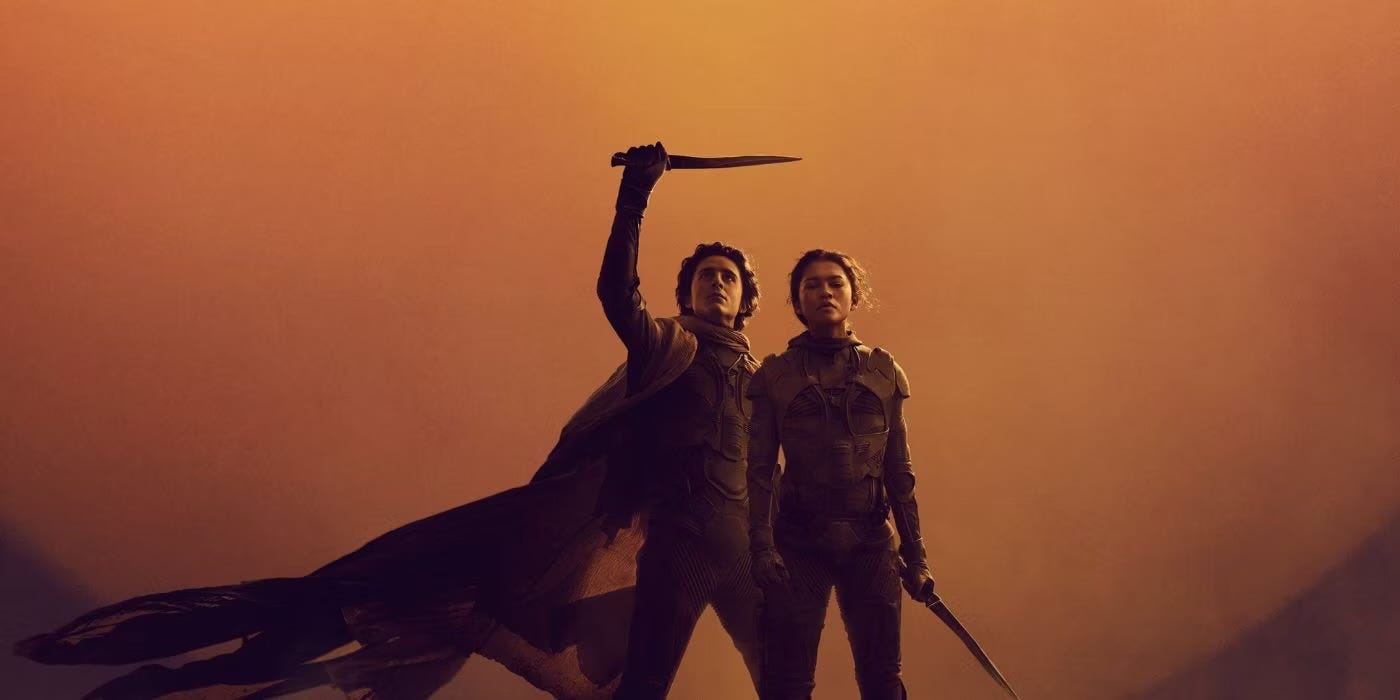
Whatever happens next, after the way these two films turned out, I am very interested in seeing it.
So, in summation, while sand-walking is ridiculously dumb-looking, and I don’t believe that anyone could actually get anywhere while doing it, the rest of the film is not dumb, it’s actually pretty smart, and it does a really good job of taking a massive and well-loved, and also occasionally really clunky, story, and makes two really good movies out of it, and all while looking cool as it does it too.
Big thumbs up.
